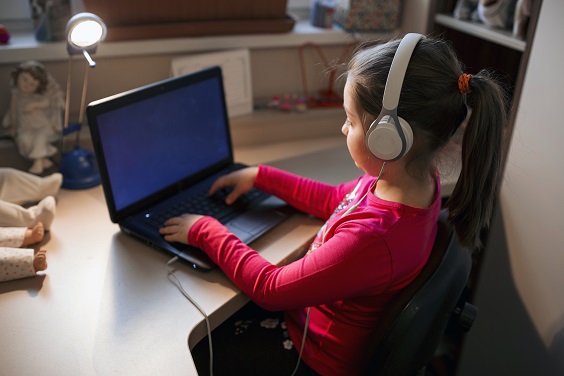DETAIL
Keeping Children Safe Online
 The outbreak of Coronavirus has resulted in changes in the pattern of many activities, including for school. Students in many countries are forced to learn from homes and schools closed to avoid crowds and reduce the risk of Covid-19 transmission. Some regions in Indonesia are starting to loosen the Large-scale Social Restriction (PSBB) and preparing to face the new normal. For now, though, we still have to wait for reopening to be officially announced.
The outbreak of Coronavirus has resulted in changes in the pattern of many activities, including for school. Students in many countries are forced to learn from homes and schools closed to avoid crowds and reduce the risk of Covid-19 transmission. Some regions in Indonesia are starting to loosen the Large-scale Social Restriction (PSBB) and preparing to face the new normal. For now, though, we still have to wait for reopening to be officially announced. Meanwhile, children and teens are spending more and more time online on their phones, tablets, laptops and video games. Being connected with their friends and peers help them reduce the impact of isolation and being sheltered due to the pandemic. It encourages them to pursue their interests, stay close with their friends and get updates of what’s happening out there. But there are also risks and dangers can present itself such as adult targeting, gaming and harmful content, if no safety nets are in place.
How you can protect your children from online risks? How do you balance safety and isolation?
1) Tech fixes:
• Set up parental controls; limit time online
• Set up strict privacy settings on online apps and games
• Turn on SafeSearch on browser
• Cover webcams when not in use
2) Create healthy and safe online habits
• Help your children learn how to keep personal information private, especially from strangers.
• Involve your child or teen in creating family tech agreement about healthy device use.
• Create device-free spaces and times in your house (eating, sleeping, playing and schoolwork).
3) Spend time with your child or teen online
• Explore website, social media, games and apps together.
• Talk to your teen on how to report inappropriate content.
4) Keep your children safe with open communication
• Be alert to signs of distress. Notice if your child is being upset, withdrawn, secretive, or obsessed with online activities.
• Tell your children that if they experience something online that makes them feel uncomfortable or scared, they can talk to you and you will not get mad or punish them.
• Create trusting relationships and open communication through positive support and encouragement.
• Just being in the same room with your child or being able to see your child on the computer without being able to see the screen is not enough. You need to actually pay attention and see what your child is seeing. Keep the computer in a central place, such as the living room, so that you can keep track of what your child is doing while you are making dinner or doing other chores.
The Philippines decided not to allow students to return to school until a COVID-19 vaccine becomes available, while South Korea decided to reopen schools after the Covid-19 outbreak began to subside and students must follow applicable health protocols to prevent the emergence of new cases. The decision when schools in Indonesia are reopened is certainly different from other countries and until we hear from the Government or until we reach a ‘new normal’ condition, then we must keep our children safe even when they’re staying at home – not only from the coronavirus but also from cyber risks.
It is more important than ever to be vigilant and informed about the dangers online that may face your children.
Keep them safe, stay positive and use this time of staying home together to be stronger and better together as a family.

Pictures: Freepik.com











